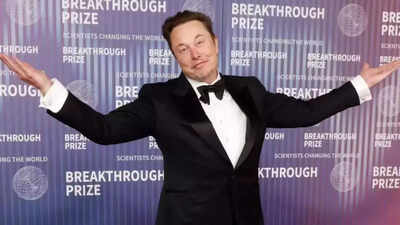Key Takeaways
- ISS recommends Tesla shareholders reject Elon Musk’s $1 trillion compensation package
- This marks the second consecutive year ISS has opposed Musk’s pay plan
- Tesla is aggressively campaigning for shareholder support ahead of November 6 vote
- Musk’s compensation requires Tesla to reach $8.5 trillion market value
Proxy advisory firm Institutional Shareholder Services (ISS) has urged Tesla investors to vote against CEO Elon Musk’s $1 trillion compensation plan, creating a significant hurdle for the company ahead of its November 6 annual shareholder meeting.
This represents the second straight year ISS has recommended rejecting Musk’s pay package, citing concerns about its “magnitude and design.” The advisory firm expressed doubts about whether the proposal would actually keep Musk focused on Tesla rather than his other ventures including SpaceX, Neuralink, xAI, and The Boring Company.
ISS Raises Serious Concerns
In its report, ISS stated: “Although one of the main reasons for this award is to retain Musk and keep his time and attention on Tesla instead of his other business ventures, there are no explicit requirements to ensure that this will be the case.”
The firm cited “unmitigated concerns” with the compensation plan’s structure and scale. ISS also advised against granting Musk any backpay related to the voided 2018 plan and recommended rejecting a proposal for Tesla to invest in Musk’s AI firm, xAI, calling the arrangement “highly unusual.”
Tesla’s Strong Response
Tesla has launched a counter-campaign on social media platform X, urging shareholders to support Musk’s compensation package. The electric vehicle manufacturer criticized ISS for “missing fundamental points of investing and governance” and encouraged investors to follow the company’s voting recommendations.
What Musk’s Compensation Requires
The proposed compensation plan, introduced in September, aims to secure Musk’s commitment to Tesla for the next decade. To receive the full payout and increased voting control, Musk must help Tesla achieve a staggering $8.5 trillion market valuation while expanding its electric vehicle, robotics, and robotaxi operations.
If successful, Musk’s stake in Tesla could increase to approximately 25%. The billionaire remains Tesla’s largest shareholder but has warned he might pursue projects outside the company if his equity stake isn’t increased. Musk previously sold part of his Tesla holdings to fund his acquisition of Twitter, now rebranded as X.




